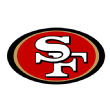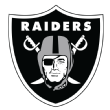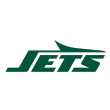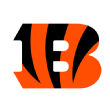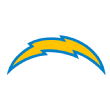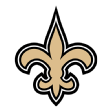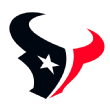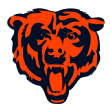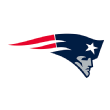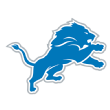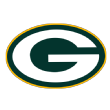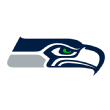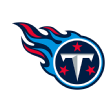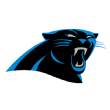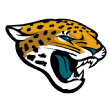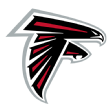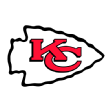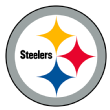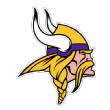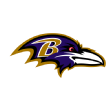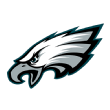Ranking 2020 NFL offseasons from worst to first: Barnwell on the Raiders, Saints, 49ers, more

With the NFL universe on pause, now seems like a good time to continue our big-picture look into how each organization did during the player-acquisition period of the offseason. I'm going to run through all 32 teams and rank the work they did from worst to first.
To measure how each team performed, I'm comparing their roster, cap situation and future draft capital at the beginning of the offseason to what they have in mid-May. The most important thing a team can do is add talent, so those that made significant inroads in improving their roster will rank highly, while those that saw key people leave without replacements won't. I also considered how each attacked their specific needs, how well they read the market and handled the financial side of their deals, and what they did to create future draft picks.
For each team, I'll include what went right, what went wrong, what they might have done differently with a bit of hindsight and what they need to do next in the months to come. Finally, and this is important: These aren't power rankings of how these teams will perform in 2020. Some of the worst teams in the league from last season will finish at or near the top of these rankings because they were able to draft immediate-impact players at key positions, while some of the best teams shed talent or weren't able to add much in the draft because they already had dealt away picks.
I started Monday with the bottom eight teams, and hit eight Tuesday and Wednesday, and then I'll finish up with the top eight on Thursday. Jump to my last-ranked team here.
Jump to a team:
ATL | BAL | CAR | CHI | CIN | DET
GB | HOU | JAX | KC | LAC | LAR
LV | MIN | NE | NO | NYG | NYJ
PHI | PIT | SEA | SF | TEN | WSH
16. San Francisco 49ers
What went right: The 49ers stuck to their plan on both sides of the ball with their two first-round picks. After trading defensive tackleDeForest Buckner to the Colts for the No. 14 pick, they used that selection to draft his replacement,Javon Kinlaw. The 49ers then traded up six slots in the bottom half of Round 1 to add another weapon for Kyle Shanahan, wide receiver Brandon Aiyuk, who gives Jimmy Garoppolo another playmaker who can threaten opposing defenses with the ball in his hands.
Later during the draft, they found the best possible replacement for the retiring Joe Staley by trading two picks for star offensive tackle Trent Williams. The two sides agreed to leave Williams' contract on the table for future talks, but he was drafted by the Shanahan family when they were in Washington and should have no problem stepping in as a plug-and-play replacement on the left side of the San Francisco line.
What went wrong: Buckner was one of the NFL's best defensive linemen, and while Kinlaw could develop into a superstar, that dominant 49ers line is going to miss Buckner's talent. San Francisco also re-signed Arik Armstead to a five-year, $85 million deal, which is an awful lot of money for a player who has only one season in five as an impactful pass-rusher. Armstead is a great run defender, but the organization is paying him like the guy who had 10 sacks in 2019 as opposed to the one who had nine sacks combined across his previous four seasons.
The 49ers mostly stayed put elsewhere across their roster, which was a bit of a surprise. I thought they might try to do something at cornerback after Ahkello Witherspoon struggled when healthy and had to be benched during the playoffs, but the only move the team made was to re-sign Jason Verrett, who gave up a 39-yard touchdown and took a 32-yard pass interference penalty on two of his four defensive snaps last season. The team cut starting guard Mike Person and only replaced him with Jets utility lineman Tom Compton; he'll compete withDaniel Brunskill for the right guard spot.
What they could have done differently: Aiyuk is a talented wideout, and I'm confident Shanahan will get the most out of his skill set, but the 49ers probably should have traded down to grab extra picks as opposed to trading up for a wide receiver in a class full of wideouts. General manager John Lynch said after the fact that Aiyuk was neck-and-neck with CeeDee Lamb atop the team's board, but this was an incredibly deep wideout class, and teams often overestimate their ability to rank players before the draft.
After trading up to grab Aiyuk at No. 25, the 49ers were left without second-, third- or fourth-round picks and didn't select again until No. 153. It's possible there might not have been a trade available when they picked at No. 31, but that would have been their best option given their missing selections. They also will be without a third-round pick in 2021 after the Williams trade.
What's left to do: Extend George Kittle. San Francisco's star tight end is entering the final year of his rookie deal, and after Austin Hooperbecame the first tight end in league history to sign a deal averaging more than $10 million per season, Kittle should push the market much further forward. A four-year extension should top $50 million.
15. Las Vegas Raiders
What went right: Jon Gruden and general manager Mike Mayock got to work fixing a defense that has ranked 30th and 31st in defensive DVOA during Gruden's second stint as Raiders coach. Carl Nassib and Maliek Collins add two solid rotation players up front. The Raiders flooded the secondary with free agents (Damarious Randall, Jeff Heath) and draft picks (Damon Arnette, Amik Robertson) and might be able to move 2019 signing Lamarcus Joyner back to his best position at free safety, which would upgrade multiple spots in the lineup. The centerpiece was signing Rams star Cory Littleton and potential Bears breakout guy Nick Kwiatkoski to heal the team's wounds at linebacker, where they've been a mess for years.
With the offensive line set, Gruden was able to tinker and make interesting additions. The Raiders used their first-round pick on burner Henry Ruggs III, added 6-foot-3 wideout Bryan Edwardsin Round 3 and then used another third-rounder on jack-of-all-trades playmakerLynn Bowden Jr., who will start his NFL career as a running back. Jason Witten isn't anyone's idea of a burner these days, but he's overqualified as the second tight end behind Darren Waller. Gruden and Mayock also brought in quarterbackMarcus Mariota and paid the second overall pick from 2015 just enough money to make it seem like Derek Carr has something to worry about if he struggles.
What went wrong: I'm not sure the offense adds up. The Raiders' top two wide receivers are both field-stretchers in Ruggs and Tyrell Williams, but Carr's average pass traveled just 6.2 yards in the air last season, the shortest of any starting quarterback's. The only quarterbacks who threw 20 or more yards downfield less frequently were Drew Brees and Jimmy Garoppolo. Maybe the offense will change, but Carr and Mariota haven't been prolific deep passers during their careers.
For the second year in a row, the Raiders used a first-round pick on a player who was regarded as a bit of a stretch. Last year, it was defensive endClelin Ferrell at No. 4, a move whose wisdom was not immediately revealed during Ferrell's rookie season. This year, it was taking Arnette in the first round (No. 19) when many expected him to be available in Round 2. Las Vegas didn't have a second-round pick, but trading down would have been a viable option.
What they could have done differently: I was surprised the Raiders brought back defensive coordinator Paul Guenther after two dreadful seasons. The team has unquestionably been transitioning on that side of the ball, but 30th and 31st is hard to defend. With Vegas importing the likes of Joyner and Littleton from the Rams, I thought it might make sense for Gruden to dial up legendary defensive coordinator Wade Phillips, who has a remarkable track record of turning around defenses overnight.
What's left to do: Bring in competition for Daniel Carlson. The Raiders are pretty much set in terms of depth, so if I have to pick one spot in which they could make another addition, I'd look toward kicker. Carlson hit just 19 of his 26 field goal attempts in 2019 and was the league's fifth-worst kicker on scoring plays by Football Outsiders' kicking measure. They signed rookie free agent Dominik Eberle, but this is a position in which they might want to grab a veteran who gets cut at the end of camp.
14. New York Giants
What went right: The Giants needed a lot this offseason, and general manager Dave Gettleman addressed many of the biggest concerns. Help in the secondary? They signed cornerJames Bradberryfrom Carolina. A fix for the rotating void at inside linebacker? Blake Martinez came over from Green Bay. Protection for Daniel Jones? They used the No. 4 overall pick on tackle Andrew Thomas, who should start his career at right tackle before replacing Nate Solder on the left side.
It remains to be seen whether Joe Judge will be up to the task as a first-time head coach, and his name didn't exactly excite Giants fans, but new offensive coordinator Jason Garrett was once one of the league's most promising playcallers. (Remember that Garrett was the Ravens' first choice to replace Brian Billick in 2008.) Recent league history is littered with guys like Pat Shurmur, Gary Kubiak and Todd Bowles, each of whom looked behind the times and overwhelmed as head coaches before revitalizing their careers when moved back into a coordinator role. Garrett could do the same in New York.
What went wrong: Bradberry and Martinez both signed expensive deals, with Martinez's three-year, $30.8 million contract sticking out at a typically low-cost position for a player some Packers fans were happy to see leave town. The Giants also didn't address what might be their biggest position of need by adding an edge rusher; they haven't been able to re-sign Markus Golden and only added Kyler Fackrell, whose 10.5-sack season in 2018 sticks out like a sore thumb, given that he had six sacks across his three other seasons combined.
Gettleman also placed the franchise tag on defensive lineman Leonard Williams, doubling down on the inexplicable trade he made to acquire Williams for a going-nowhere Giants team last season. Williams will make $16.2 million and attempt to have his long-awaited breakout season in 2020, while New York will send a fourth-round pick in 2021 to the Jets to go with the third-rounder it shipped this past draft. Williams proceeded to file a grievance in the hopes of being repositioned as a defensive end, which would earn the former USC star an additional $1.7 million. CornerbackDeAndre Baker, a first-round pick last year, was charged with armed robbery last week.
What they could have done differently: Letting Williams leave would have been embarrassing given the original trade, but given the circumstances, the Giants should have treated Gettleman's folly like a sunk cost and moved on accordingly. (Contrary to Gettleman's expectations in December, they would not have earned a third-round compensatory pick for letting Williams leave, because he wasn't likely to net the sort of offer that would have resulted in such a significant return. They also would have netted that pick only if they sat out the top end of free agency, which would have kept them from signing Bradberry.) They could have used the money they saved to sign Jadeveon Clowney, a more talented player at their most obvious weakness.
What's left to do: Bring back Golden. New York applied the rarely used unrestricted free agent tender to Golden, which would ensure that the team is eligible for a compensatory pick if Golden signs elsewhere. If he doesn't join another team before July 22, the Giants would be the only team eligible to sign him for the upcoming season. The tag offers Golden a one-year, $5.3 million deal, which is a good from the team's perspective, given that he racked up 10.5 sacks and 27 knockdowns in a bounce-back 2019 campaign.
13. New York Jets
What went right: After a disastrous pair of offseasons saw the Jets buy big and get little out of stars such as cornerbackTrumaine Johnson, running backLe'Veon Bell and linebackerC.J. Mosley, new general manager Joe Douglas went all the way in the opposite direction. The former Eagles executive didn't make many headlines, but the moves he made were generally smart, one-year deals for moderate money, as Douglas brought back cornerBrian Poole and linebackerJordan Jenkins and signed defensive backPierre Desir, receiverBreshad Perrimanand linebackerPatrick Onwuasor. Johnson, meanwhile, was cut.
In an echo of what Brandon Beane did in Buffalo a year ago for Josh Allen, Douglas rebuilt quarterbackSam Darnold's line by signing four offensive linemen and retaining Alex Lewis. Douglas completed the process by using the Jets' first-round pick on massive offensive tackle Mekhi Becton. With his second-rounder, Douglas drafted wideout Denzel Mims. The most important thing for the Jets to do in 2020 is figure out whether they want to keep treating Darnold as their quarterback of the future.
What went wrong: I'm not sure some of the offensive linemen Douglas added are going to be able to protect Darnold. The deals given to Lewis (three years, $18.6 million) and George Fant (three years, $27.3 million) might go down as paying replacement-level linemen like viable starters out of hope and desperation. You could make a case that Douglas might have been better off paying for Jack Conklin at the top of the market while waiting for bargains to shake out as free agency wore on. As an example, the money they gave Lewis could have viably gone towardLarry Warford.
I wish the Jets had added more at receiver, although they were likely hamstrung by the contract handed to injured wideout Quincy Enunwa. Did they have the opportunity to top the Cardinals' offer for DeAndre Hopkins? The move to sign Frank Gore seemed bizarre; as cool as it is to see Gore playing into his late 30s, they need to find a running back to replace Bell after he's presumably cut next offseason. I'm also not sure it was a great idea to hand coach Adam Gase a second season after a bizarre 2019 campaign; while New York finished 6-2, just two of those wins came against teams who had their Week 1 starting quarterback in the lineup for the majority of the game. One of the losses came to the Bengals, too.
What they could have done differently: If I had to pick one Jets move to take back, Fant sticks out. It's tough to find starting tackles, but Fant was a below-average starter in 2016. After tearing his ACL the following offseason, he has really played only six games as an every-down player, with the Seahawks instead using him as a sixth offensive lineman and swing tackle. Drafting Becton means the Jets can start Fant on the right side, and they can get out of this deal next offseason after paying him $8.9 million in 2020 if Fant can pass a physical, but he's still just a project.
What's left to do:SignJamal Adamsto an extension. The trade rumors that surrounded Adams last offseason are only going to linger until the Jets get a deal done with their star safety. Adams is still two years away from free agency, but it'll still probably take a four-year, $60 million extension to get the former No. 6 overall pick to commit long term.
12. Cincinnati Bengals
What went right: The Bengals added a guy coming off arguably the best season in college football history at the most important position in sports. QuarterbackJoe Burrowis a great start for Cincinnati, which followed in the draft by adding Tee Higgins at the top of Round 2. With the organization retaining star wideout A.J. Green via the franchise tag, Burrow should quietly have one of the league's most exciting wideout corps to target in 2020.
Everyone knew the Bengals were taking Burrow. What was really surprising about the offseason, though, was their foray into unrestricted free agency. In an attempt to fix a defense that ranked 30th in DVOA a season ago, they signed defensive tackle D.J. Reader from the Texans, cornerbacks Mackensie Alexander and Trae Waynes from the Vikings and safety Vonn Bell from the Saints. I'm pretty sure they spent more on defensive free agents this offseason than they did during Marvin Lewis' entire tenure running the team.
What went wrong: Well, some of those deals weren't very good. The three-year, $42 million deal for Waynes stood out as a dramatic contract for a player who was often frustrating in Minnesota. Reader's market grew after an impressive 2019 season, but the Texans were actually slightly better rushing the passer over the past three years with him on the sideline. On a four-year, $53 million deal, Cincinnati is paying Reader to be both a run-plugger and someone who can disrupt the pocket. Last season was the only time Reader knocked down opposing quarterbacks more than six times.
And while Burrow has plenty of wide receivers, the Bengals didn't really add much to help along the offensive line. Jonah Williams, a first-round pick last year, will return after missing all of his rookie season, but the only other lineman the organization added was Xavier Su'a-Filo, who was a mess in Houston before spending the past two years as an injury replacement for the Cowboys. Burrow is a promising prospect, but if he doesn't get protection, it won't be any use.
What they could have done differently: The Waynes deal looked aggressive at the time and arguably looks worse now, given that the cornerback market was relatively mild. I'm not sure there were a lot of teams rushing to give Waynes $14 million per season, and if they were, I would have preferred to let them take that risk.
Given the slim likelihood of any team trading anything meaningful for Andy Dalton when they knew Burrow was on the way, the Bengals probably would have been better off just cutting Dalton back in March. I'm guessing they knew Dalton was going on the chopping block and didn't figure the Red Rifle's salary into their offseason budgeting, but they could have been a landing point for one of the other backups on the market. Now, they only have Ryan Finley and Jacob Dolegala behind Burrow.
What's left to do: Sign Larry Warford. The Bengals should be at the front of the queue for the former Saints guard -- Warford would be a massive upgrade on 2019 fourth-rounder Michael Jordan. They naturally hope Jordan will develop into a useful starter, but with Burrow already facing major question marks on the right side with Su'a-Filo and Bobby Hart, I'd rather go after the three-time Pro Bowler as more of a sure thing. Warford also played his college football at Kentucky, 90 minutes south of Cincinnati.
11. Washington
What went right: Washington landed Ron Rivera as its new coach, and the two-time Coach of the Year went right to work attempting to fix the defense. Washington brought back Kendall Fuller, reunited Rivera with longtime Panthers linebacker Thomas Davis, and took one-year fliers on defensive backsSean DavisandRonald Darby and linebackerKevin Pierre-Louis. The secondary has been a mess in Washington for years, and moving on from Josh Norman likely qualifies as addition by subtraction. The team topped the transformation off by using the No. 2 overall pick on pass-rusherChase Young.
What went wrong: Most of the deals I mentioned were reasonable, but the four-year, $40 million deal given to Fuller was too generous for a player who has played only one above-average season. The team also sold low on two disgruntled veterans, tackleTrent Williams and cornerbackQuinton Dunbar, although I'm pushing some of the blame for the modest Williams return from San Francisco on deposed executive Bruce Allen. Dunbar, meanwhile, was charged with armed robbery last week.
Rivera didn't do enough to support second-year quarterbackDwayne Haskins. The only veteran receivers Washington imported this offseason were roster fodder like Logan Thomas, Richard Rodgersand Cody Latimer, the latter of whom was arrested Saturday on five charges related to discharging his weapon in a Colorado apartment. The organization added Antonio Gibson in the third round and Antonio Gandy-Golden in the fourth round of the draft, but its move to give up a second-rounder to jump up eight spots last year to draft edge rusherMontez Sweat cost Washington a chance at adding a more notable wide receiver with the No. 34 pick.
What they could have done differently: When Robby Anderson's price dipped, I would have liked to have seen Washington target the former Jets wideout on a similar sort of contract to the two-year, $20 million pact he inked with Carolina. Anderson is probably stretched as a No. 1 wideout, but he would have made an excellent No. 2 across from budding star Terry McLaurin.
What's left to do: Extend Brandon Scherff. After losing Williams, the next thing for Washington to do to protect Haskins is to retain its star guard. Scherff was retained via the franchise tag on a one-year, $15 million pact, and I'd expect the Iowa product to top that figure on an average annual salary across a new deal. A Scherff extension would likely come in somewhere around five years and $75 million.
10. Los Angeles Chargers
What went right: The Chargers were able to add a number of veterans on what were team-friendly deals relative to the market. Offensive tackleBryan Bulaga arrived on a three-year, $30 million deal. CornerbackChris Harris Jr. left the Broncos for two years and $17 million. Defensive tackleLinval Joseph signed on a similar deal. The Chargers won the trade when they dealt tackleRussell Okungto Carolina for guardTrai Turner. They even franchised tight endHunter Henry and locked up running backAustin Ekeler on a four-year, $24.5 million deal. Every deal here looks good.
What went wrong: The one position the Chargers didn't fill was at left tackle; they dealt Okung and never acquired a meaningful replacement. I thought they might go for a left tackle with the sixth overall pick, but they ended up using the selection on quarterback Justin Herbert. He'll compete with Tyrod Taylor for the starting job; history tells us that Herbert should be the starter by the time October rolls around. As someone who thinks Philip Rivers has something left in the tank, I would consider the drop-off between Rivers and a mix of Taylor and Herbert to be meaningful.
While it's impossible to talk a team out of taking a young quarterback when they see one they like in the top 10, the trade for Kenneth Murray later in the first round is easier to argue. Off-ball linebackers just aren't that hard to come by, and the Chargers essentially valued Murray as a top-15 pick by sending their second- and third-rounders to move up and acquire him. Murray has to turn into a Pro Bowl-caliber player for this move to work. The Patriots were the team that traded down, and teams that trade up with the Patriots usually regret their move.
What they could have done differently: I would have stayed put and trusted that I could find a middle linebacker in the middle rounds or in free agency to rotate with Denzel Perryman. The Chargers likely wouldn't have been able to find a plug-and-play left tackle in the second round, but adding someone like Ezra Cleveland as an option would have left them in better shape than moving forward with Sam Tevi, Trent Scottand Trey Pipkins.
What's left to do: Sign Jason Peters. While Peters has been popularly linked to a return with the Eagles, L.A. is the best possible landing spot for the 38-year-old tackle. The moves this organization made this offseason suggest it's trying to win now, even as it retools at quarterback. Peters wasn't at his Hall of Fame best in 2019 and probably won't be again in 2020, but he would be a massive upgrade on the likes of Tevi, Scott and Pipkins.
9. New Orleans Saints
What went right: The Saints brought back Drew Brees! While the odds of Brees playing somewhere else seemed remote, well, ask the Patriots about remote odds. It was always going to be tough to keep Teddy Bridgewater as the primary backup, but the Saints were able to get a relative bargain in their one-year, $1.1 million deal with Jameis Winston. Even if Winston is just the inconsistent quarterback we saw over five years in Tampa Bay, that sort of money is well below market value for a borderline starting quarterback.
Nobody seems to squeeze out more cap space to add veterans on short-term deals than the Saints, who were back to their usual tricks this offseason. In addition to retaining players such as offensive linemanAndrus Peat and defensive tackleDavid Onyemata, Sean Payton & Co. were able to import safetyMalcolm Jenkins, wide receiverEmmanuel Sandersand defensive tackleMargus Hunt. With $9.5 million in cap space remaining after cutting three-time Pro Bowler Larry Warford, they might not be done shopping.
What went wrong: After using the first-round tender on jack-of-all-trades Taysom Hill, they elected to lock up the BYU product through 2021 by handing him a one-year, $16.3 million pact that is almost fully guaranteed. Hill has yet to play even half of the offensive snaps in a single game, and there's little evidence that he profiles as a viable long-term replacement for Brees. Hill turns 30 in August, and the Saints have trusted him to throw only 13 passes over the past two years, including one lone attempt over their five games without Brees in 2019. Hill has a passer rating of 46.6 on those throws. As a player who has touched the ball just under 50 times per season over the past two years, his usage rate needs to triple -- or he needs to turn into a useful quarterback after Brees retires -- to justify this deal.
What they could have done differently: Hill is more valuable to New Orleans than he is to anybody else and vice versa. It's difficult to imagine that he would have earned this sort of money on the open market. Tendering Hill at the first-round level was fine, but I would have been willing to go year to year and trust that the team's relationship with Hill would have led to a new deal after the 2020 campaign.
What's left to do: Add an edge rusher. One place in which the Saints are relatively thin is on the edge, where they have Trey Hendrickson and little else behind starters Cameron Jordan and Marcus Davenport. They want to continue developing Davenport after trading two first-round picks for the UTSA product, so that would probably rule out signing an expected starter like Jadeveon Clowney or Everson Griffen, but I would never rule out a signing when this team is involved. Someone like Ziggy Ansah or Clay Matthews would make sense.
Come back Thursday for Nos. 8-1 on the list.
Nos. 32-17
32. Houston Texans
What went right: Hmm. We're starting this series with the toughest question, huh? I suppose the two-year, $3 million deal the Texans gave former Eagles and Chargers defensive back Jaylen Watkins could be decent value if they slot him in the correct role. They also upgraded their special-teams coverage units by importing players such as Eric Murray and Michael Thomas. Second-round pick Ross Blacklock, Houston's first selection in the 2020 draft, could turn into a useful interior disrupter and third pass-rusher for a team that had the league's fourth-worst adjusted sack rate.
What went wrong: The Texans traded away arguably their second-best player for pennies on the dollar because he wanted a new contract and then overpaid for just about every one of their offseason additions. Even if they hadn't traded wide receiver DeAndre Hopkins and a swap of fourth-rounders for a second-round pick and running back David Johnson's bloated contract, this would be a disaster.
Coach Bill O'Brien misread the market and handed out significant deals to cornerback Bradley Roby (three years, $36 million), wide receiver Randall Cobb (three years, $27 million), kicker Ka'imi Fairbairn (four years, $17.7 million) and Murray (three years, $18 million) and even threw in a one-year, $4 million pact for backup quarterbackAJ McCarron. O'Brien finished up by giving agentless left tackle Laremy Tunsil a three-year, $66 million extension, a market-shifting deal everyone saw coming from the moment the Texans traded away multiple first-round picks to acquire Tunsil without negotiating an extension as part of the pact.
What they could have done differently: How much time do you have? Let's start by using the window afforded them during the trading process last year to insist on getting Tunsil signed to an extension as part of that trade. The team reportedly attempted to sign Carlos Hyde to an extension before free agency; Hyde isn't much more than a league-average running back, but if signing him meant that O'Brien wouldn't have assumed the Johnson contract, it would have been a hidden victory for this team.
The Texans shouldn't have traded away Hopkins, contract demands or not. The Falcons were able to satiate Julio Jones when he was three years away from the end of his deal by moving money around before handing him a deal with two years to go. And if you don't want to follow that model, what was Hopkins going to do in a league in which the new collective bargaining makes it virtually impossible for players to hold out?
Read more: Barnwell graded more than 100 signings and trades this offseason
If O'Brien thought his relationship with Hopkins was unsalvageable and he needed to trade his star wide receiver away, that's one thing. He simply had to get more out of that deal than an underwater running back contract and a second-round pick. Even if Hopkins wanted a new deal, the Stefon Diggs trade saw the Vikings send a less productive player with a reputation of creating drama inside his building to the Bills for a much greater haul, most notably a first-round pick. Beating the Vikings to the punch for that Bills deal would have been more defensible.
What's left to do: Trade Kenny Stills. The Texans don't really have a need for Stills as their fourth wide receiver behind Cobb, Brandin Cooks and Will Fuller, and the former Dolphins wideout has $7 million in unguaranteed money due on the final year of his deal. There's an obvious fit here with the Packers, who didn't get all of their shopping done this offseason.
31. Chicago Bears
What went right: Offensive tackle Germain Ifedi didn't live up to expectations as a first-round pick for Seattle, but the Bears were able to sign the oft-penalized lineman to a one-year deal for just over $1 million, which is good value for a solid run-blocker. They will try Ifedi at guard as a replacement for the retired Kyle Long. General manager Ryan Pace also took the first steps out of the Mitchell Trubisky business, declining the quarterback's fifth-year option while bringing in Nick Foles to compete for a starting job. While Robert Quinn's five-year, $70 million deal is expensive, it's for a player for whomESPN's pass rush win rate analysis suggests was the most effective pass-rusher in the league over the past two seasons. I also liked the flier Chicago took on former Steelers first-round corner Artie Burns.
What went wrong: Despite the fact that Foles' contract was a disaster for the Jaguars, the Bears sent a fourth-round pick to acquire him and didn't force the Jags to eat any of the money, instead restructuring $21 million in guarantees to come due over the next three seasons. Foles could work out as the team's starter, but this is the equivalent of signing an expensive three-year gym membership as a college senior. There couldn't have been much of a market for Foles, and Andy Dalton, who was cut by the Bengals after the draft, came without the pick or significant cash attached.
The Jimmy Graham deal was likely the worst contract of free agency, as a Bears team that had already committed significant assets to tight ends Dion Sims, Adam Shaheen and Trey Burton under Pace gave Graham a two-year, $16 million deal with $9 million guaranteed and a truly inexplicable no-trade clause. Graham can't block, and he was anonymous during his time with the Packers. Chicago needed three voidable years to re-sign linebacker Danny Trevathan on a three-year, $21.8 million deal, which is like taking out a loan so you can help pay for that gym membership. There are still questions about what this team has at wide receiver and in the secondary, where it will likely need second-rounder Jaylon Johnson to start as a rookie.
What they could have done differently: Waited out the quarterback market. Foles wasn't going to have many suitors, and the Jaguars had little leverage in moving his massive contract. Judging from the deals that Dalton and Jameis Winston signed -- and the offers Joe Flacco and Cam Newton have yet to get -- there was more supply in the quarterback market than demand this offseason. Wiping away the Graham deal goes without saying; if the Bears wanted to go after a versatile tight end, they were better off handing a similar deal to Eric Ebron, who signed with Pittsburgh for less money.
What's left to do: Add a veteran cornerback. The bottom tier of the cornerback market still has plenty of options available. Guys such as Eli Apple, Trumaine Johnson and Dre Kirkpatrick were generally problems in 2019, but the Bears should be able to sign one of them for little more than the veterans minimum. I would prefer Apple, who is still only 24 and was competent for the Saints in 2018.
30. New England Patriots
What went right: The Patriots finally invested at tight end, using third-round picks on Devin Asiasi and Dalton Keene. Franchising and retaining guard Joe Thuney gives them their best chance of building around the running game as they shift their offensive identity. Perhaps most important, they kept their dominant secondary together by re-signing Devin McCourty to a two-year deal, losing only Duron Harmon to the Lions.
Behind the 32-year-old McCourty at safety, coach Bill Belichick made obviously Belichickian additions by signing Adrian Phillips and using a second-round pick on the versatile and athleticKyle Dugger. New England also banked three projected compensatory picks for the players it lost in free agency, including a third-rounder for quarterback Tom Brady and fourth-rounders for linebackers Jamie Collins and Kyle Van Noy.
What went wrong: The Patriots had Brady at quarterback, and now they have Jarrett Stidham. Even a diminished Brady would still project to be a playoff-caliber quarterback with the sort of defense this team had in 2019; the same thing isn't clear with Stidham, who appears to be the Week 1 starter. Losing Brady is one thing, but the Pats neglecting to make a meaningful move for someone like Andy Dalton seems shortsighted and stubborn.
Franchising Thuney means New England has a league-high $28.6 million of its cap committed to guards in 2020, nearly $7 million more than any other team. The Thuney tag cost the Patriots valuable cap space and eliminated their leverage in dealing with Rob Gronkowski when he wanted to return, forcing them to trade their legendary tight end to the Bucs for a midround pick. The Pats also lost three members of their starting front seven with Collins, Van Noy and defensive tackle Danny Shelton leaving town. While I have faith Belichick will replace those guys in the long term, the defense should take a step backward in 2020.
What they could have done differently: When Brady was clamoring for more money during the summer of 2019, the Patriots gave him a "two-year deal," which was really an $8 million raise and a ticket to free agency after the season. Given that Brady ended up netting only a two-year, $50 million deal on the open market, this team could have made him a credible multiyear offer to stick around for the remainder of his career.
Would Brady have taken that kind of offer if the Pats had made it at this time last year? It's impossible to say. Given what both sides had to gain, though, it's not hard to imagine a common ground where the Patriots could have given him a new deal with two years of guarantees and a voidable year or two attached to help create short-term cap space. (The Pats used that space on Antonio Brown, which is another thing that didn't go well.)
Belichick is obviously not stupid; the Patriots chose not to make that sort of offer for a reason. Stidham's performance over the next couple of years will make it clear whether the legendary coach was right to move on from the most fruitful relationship in NFL history.
What's left to do: Clear out cap room and wait. New England should be targeting veterans who come available now that we're on the other side of the post-June 1 window. (I know that sounds weird, but in the NFL, the middle of May comes after June 1.) Belichick can clear out about $5 million by cutting backup running back Rex Burkhead and offensive lineman Jermaine Eluemunor or gin up another $3 million or so by releasing safety Terrence Brooks and tight end Matt LaCosse. The Pats should be in the market for a veteran tight end, but more important, it's money they could put toward someone likeCam Newton or Joe Flacco, if they're healthy enough to compete with Stidham and Brian Hoyer.
29. Detroit Lions
What went right: The Lions went all-in on rebuilding their oft-frustrating secondary, trading cornerback Darius Slay and replacing him by signing Desmond Trufant and drafting Jeff Okudah at No. 3 overall. On paper, the trio of Okudah, Trufant and Justin Coleman would rank as one of the best cornerback combinations in the league. Trading for safety Duron Harmon completed the defensive back makeover. They will miss Slay, but even with him on the field last season, they allowed a passer rating of 97.4, which would have been the eighth-worst mark in the league.
What went wrong: Coach Matt Patricia and general manager Bob Quinn elected to rebuild most of their defense by acquiring the players Bill Belichick didn't want to keep, a move that typically turns out poorly for other teams. Jamie Collins' three-year, $30 million deal seemed particularly onerous for a linebacker who was a mess outside of New England during his run with Cleveland. The Lions will now start four former Pats on defense in Collins, Harmon, Trey Flowers and Danny Shelton. They look perilously thin along the defensive line, and while Belichick has been able to mold middling players into contributors across his front seven, Patricia's players have generally been better elsewhere than they were playing for him in Detroit.
The Lions also weren't able to parlay the No. 3 draft pick into a bidding war between the Chargers and Dolphins, forcing them to stay put. Okudah should be an impact cornerback, and I don't have any issue with them drafting him, but this team could have sorely used an extra first-round pick. Detroit used its second-round pick on running back D'Andre Swift, and while he is a talented player, this isn't a roster that can afford to use two second-round picks on running backs across three years. You could argue Kerryon Johnson is a sunk cost, but the Lions could have addressed running back with one of a number of veterans at minimal cost.
Instead, Detroit hit free agency yet again, and its deals were questionable. Trufant hasn't lived up to expectations over the past three seasons. The five-year, $45 million deal it handed Halapoulivaati Vaitai pays the former Eagles swing tackle like he is an upper-echelon starter. It sure looks reminiscent of the big deal that Detroit handed former starting right tackle Rick Wagner, which didn't work out.
What they could have done differently: Resisted the urge to go after as many former Patriots as possible. The Collins deal is a mess, and under Belichick, the Patriots have exhibited the ability to develop players such as Shelton and Harmon into useful contributors. Patricia and Quinn are trying to buy them instead. If the Lions couldn't trade down in the first round, they should have used their second-rounder on a position that's tougher to fill than halfback.
What's left to do: Add defensive line help. Detroit signed Nick Williams to a two-year deal after he impressed with the Bears in his first significant stretch of pro action as a 29-year-old, but it needs another pass-rusher to mix in on a rotational basis. I'd love to see the Lions sign Jadeveon Clowney, but more realistically, this would be a landing spot for somebody like Jabaal Sheard on the edge or Marcell Dareus on the interior. Hey, one of those guys used to play for the Patriots!
28. Los Angeles Rams
What went right: The Rams acknowledged sunk costs and made the difficult decision to essentially erase their 2018 offseason by releasing running back Todd Gurley and trading away receiver Brandin Cooks. They rebuilt their defensive line around Aaron Donald by signing Leonard Floyd and A'Shawn Robinson, and when Michael Brockers failed his physical with the Ravens, they brought him back at a reasonable price. L.A. is expected to add third- and fourth-round compensatory picks in the 2021 draft for losing linebackers Dante Fowler Jr. and Cory Littleton in free agency.
What went wrong: As I wrote about in my winners and losers column, the Rams didn't address their needs. They used their two second-round picks on replacements for Gurley and Cooks; shouldn't Sean McVay be able to coach up a running back and third receiver without having to use the team's top picks? Their offensive line is still seriously troubling, and while they re-signed veteran left tackle Andrew Whitworth, the 38-year-old committed 14 penalties last season, up from 12 over his prior two seasons combined. The Rams have two other line starters coming off season-ending knee injuries, and they added only Jamil Demby and seventh-round pick Tremayne Anchrum.
They didn't replace Littleton, and while defensive coordinator Wade Phillips has a track record of molding inside linebackers out of unlikely places, Phillips is gone too. The Rams were ninth in defensive DVOA last season, and they will go from Phillips' decades of experience to 37-year-old Brandon Staley, who has spent only three years in the NFL. They also lost longtime special-teams coordinator John Fassel, who will be replaced by former Central Michigan coach John Bonamego.
Perhaps more disconcertingly, it seems L.A. is either struggling with cash flow or going to present itself as such for the time being. It still hasn't paid Gurley or Clay Matthews owed bonus money, which led to Matthews filing a grievance with the league. Last week, the Rams reportedly applied for a $500 million loan from the league to help finance cost overruns on their new stadium while simultaneously asking for a 30-year repayment term, which is double the typical length. These two issues likely aren't directly related -- the bonuses for Gurley and Matthews are a drop in the bucket relative to the stadium costs -- but it's fair to wonder whether the organization is in position to meet the lofty contract demands of star corner Jalen Ramsey.
What they could have done differently: As was the case with the Texans and Tunsil, the Rams should have negotiated an extension with Ramsey when they made their trade with the Jaguars. It would have been more difficult, given that they made the deal in the middle of the season, but even agreeing on the broader framework of an extension would have gone a long way. Given how Marcus Peters has played since leaving the Rams, it's fair to argue that this team should have just held onto him and its two first-round picks, but that's another conversation altogether.
The Rams didn't have a first-round pick in April, and they won't have one in next year's draft, either. With that in mind, they badly needed to use one of their second-round picks this year on helping their offensive line. The organization was spoiled by what happened in 2017 and 2018, when the line stayed remarkably healthy and free-agent imports such as Whitworth and John Sullivan played at a high level. The line was a mess last season, and Jared Goff just isn't good enough to overcome heavy pressure. He posted a league-worst passer rating of 34.5 under pressure. Even if second-round pick Cam Akers turns into a superstar, the Rams should have waited to target a running back.
What's left to do: Sign Ramsey (or wide receiver Cooper Kupp). Both Kupp and Ramsey are in the final year of their respective deals, and the Rams don't want to head to the 2021 offseason with the two stars vying for one franchise tag. They also will have to work on deals for tight end Gerald Everett and defensive backs John Johnson III and Troy Hill next year, and while some of their pending free agents will be allowed to leave, they probably want to lock up at least one of their big two before the season begins. Ramsey will look to reset the cornerback market and will be asking something in the range of $20 million per season.
27. Green Bay Packers
What went right: In a market in which teams were aggressively paying for potential at offensive tackle, the Packers got a reasonable price in replacing Bryan Bulaga with Rick Wagner on a two-year, $11 million pact. While it wasn't the first-round wide receiver Packers fans were craving, Devin Funchess could deliver good value on a one-year, $2.5 million deal as a second or third wideout. And while it's not ideal for their chances of winning in 2020, if Green Bay did add its quarterback of the future when it drafted Jordan Love with the 26th pick, it would obviously push this offseason way higher than it ranks now.
What went wrong: In an offseason in which the draft was full of wide receiver talent and veteran wideout prices were depressed, the Packers really couldn't come away with more than Funchess? Taking Love was one thing, but using a second-round pick on bruising running back AJ Dillon seemed more egregious. It also seemed to hint that Aaron Jones' future after the season lies outside of Green Bay, which is unlikely to make many Packers fans happy.
The decision to move on from Bulaga also was curious, given that he signed a relatively friendly deal with the Chargers. It's possible the Packers weren't given an option to match, but if they could have signed Bulaga for three years and $30 million, they should have brought back their stalwart right tackle.
They didn't do much to address their defense. While they improved from 29th to 15th in DVOA after a spending spree in free agency last year, they are unlikely to be as healthy on the defensive side of the ball in 2020 after their starters missed a total of four games all season. They replaced linebacker Blake Martinez with Christian Kirksey, which should be a positive if Kirksey stays healthy, but I was surprised Green Bay didn't try to do more to add depth on defense.
What they could have done differently: Realistically, even if the Packers wanted Love in Round 1, they should have gone out of their way to get one of the remaining wideouts in the second round. I'm not often an advocate for trading up, and it's possible that opposing teams were quoting astronomical prices to the Packers after seeing how their fan base reacted to the Love pick, but they should have moved up in the second round to get someone like Laviska Shenault Jr. or Denzel Mims. Dillon basically has to turn into Derrick Henry for that pick to work, and both the track record and NFL career span of backs like Henry aren't great.
What's left to do: Acquire a veteran wideout. I mentioned Kenny Stills earlier, and a trade for the Texans wideout makes total sense.
26. Seattle Seahawks
What went right: The Seahawks added significant offensive line depth, re-signing Mike Iupati and signing the likes of B.J. Finney, Brandon Shell, Cedric Ogbuehi and Chance Warmack, before drafting Damien Lewis in the third round. With a thin depth chart at wide receiver behind starters Tyler Lockett and DK Metcalf, they were able to get a steal by adding Phillip Dorsett on a one-year deal for the veterans minimum. They also added some modestly priced depth at defensive end by signing Benson Mayowa and Bruce Irvin, and they made what looked to be an excellent trade in acquiring cornerback Quinton Dunbar from Washington for a fifth-round pick.
What went wrong: Dunbar's near-term future appears to be uncertain after a warrant was issued for his arrest on armed robbery charges. The Seahawks will be able to get by without him, but they still haven't acquired a primary pass-rusher after letting Jadeveon Clowney leave this offseason. The former first overall pick is still a free agent, but Seattle was 30th in adjusted sack rate with him and could be even worse without him. The two-year, $23 million deal the team gave defensive tackle Jarran Reed had a player-friendly structure, and it kept the franchise aligned with a player who was suspended for six games after being accused of domestic assault last year.
While it's obviously too early to make significant judgments about draft picks, Seattle's first-round selection of off-ball linebacker Jordyn Brooks was widely seen as a stretch for both the player and the positional value. The Seahawks have proved broader consensus wrong in the past -- Metcalf and quarterback Russell Wilson come to mind -- but Brooks will have to be great to overcome the needs this team had on either side of the line of scrimmage. Most of the offensive linemen Seattle added simply weren't very good in other places, with Finney as an exception. The one-year, $7 million deal the Seahawks gave Greg Olsen was also a lot for a 35-year-old tight end with one healthy season over his past three years.
What they could have done differently: I would suggest that they should have traded down from No. 27, but I'm not sure there was much of a market for the pick. The Packers moved up to 26 to draft Love, but after that, no team moved up in the draft until the Colts did so at No. 41. Taking a player at a more significant position would make sense to me, such as offensive tackle Isaiah Wilson or defensive end Yetur Gross-Matos.
The depth approach Seattle took to its line was interesting, but adding a second guaranteed starter behind Finney would have been helpful. Shell appears likely to start at right tackle, but on a two-year, $9 million price tag, I would have liked to see the Seahawks try to finally find a pass-protecting tackle for Wilson by going after Bryan Bulaga.
What's left to do: Bring back Clowney. A one-year reunion makes sense for both sides, given that the Seahawks are likely to be a playoff contender and Clowney wants to restore his free-agent stock on a winner. Seattle has about $15 million in cap space, which is a little more than what he might hope to land on a one-year pact at this point. General manager John Schneider could clear out $5.4 million by releasing backup pass-catchers Jacob Hollister and David Moore.
25. Tennessee Titans
What went right: The ideal situation for the Titans would have been retaining quarterback Ryan Tannehill and franchising running back Derrick Henry, which is what ended up happening. Tennessee hasn't yet come to terms on an extension with Henry, which I'm considering a plus given how poorly contracts have aged for running backs. It also lost right tackle Jack Conklin, but it replaced the former All-Pro by re-upping Dennis Kelly and using its first-round pick on Isaiah Wilson.
What went wrong: Losing Conklin and cornerback Logan Ryan cost the team two valuable starters, and I'm not sure the Kelly/Wilson combination or free-agent corner Johnathan Joseph are going to be as valuable in their absence. The Vic Beasley Jr. signing locked the Titans in on a one-year deal for a pass-rusher who has been successful for 1 of his five pro seasons and didn't offer any ability to keep him if he exceeds expectations.
Most notably, to get the Tannehill deal done, the Titans practically guaranteed their breakout quarterback three years and $91 million, which is a huge investment for a player whom the Dolphins paid $5 million to sell for a fourth-round pick at this time last year. He was one of the league's best quarterbacks last season, but he has a lengthy injury history. The Titans also want to build around running the football, which makes a $31 million quarterback an expensive accessory.
What they could have done differently: I'm not sure the Titans had much of a choice, but even limiting the Tannehill deal to two guaranteed seasons would have been a much better deal. With hindsight, it's fair to suggest they might have been better off letting him hit the market and going after somebody like Nick Foles or Andy Dalton at a much cheaper price. Likewise, for a team that has expressed interest in Jadeveon Clowney, the Titans would have been better off just signing Clowney to a one-year deal as opposed to Beasley. Some of that is hindsight, but the Beasley and Tannehill deals raised questions before we even saw how the rest of those respective markets worked out.
What's left to do: Let Henry play out his franchise tag. When he was asked about a possible extension in January, Henry said the six-year, $90 million extension thatEzekiel Elliott signed with the Cowboys was "the floor." Elliott's deal paid him $37.6 million over its first three years.
Henry's franchise tag is worth $10.2 million in 2020. If the Titans franchised him two more times, in 2021 and 2022, they would end up paying him $40.1 million, which is right about what Elliott's deal included after accounting for cap inflation. They also would retain the leverage of going year to year with the ability to opt out if Henry gets hurt or doesn't live up to expectations. The NFL's running back economics are absolutely warped, and it's unfair to Henry after his production over the past year and a half, but the Titans will likely regret it if they give him a Zeke-sized deal.
24. Carolina Panthers
What went right: You can't accuse new coach Matt Rhule of neglecting the defense. He transformed a Panthers unit that ranked 25th in DVOA and 31st in scoring defense a year ago, using each of his seven draft picks on the defensive side of the ball. Seven of the 10 players who lined up on more than 50% of the defensive snaps for Carolina in 2019 will not return.
On offense, Rhule was able to lure LSU offensive coordinator Joe Brady to take the same job; he'll work with new starting quarterback Teddy Bridgewater. The Panthers bought low on former Jets wideout Robby Anderson and could sport one of the league's top offensive tackle combinations with Taylor Moton and the newly acquired Russell Okung.
What went wrong: My biggest indicator for these rankings is measuring the talent added versus the talent lost, and the Panthers lost linebackerLuke Kuechly, cornerbackJames Bradberry, defensive tackle Gerald McCoy, guardTrai Turnerand former league MVP Cam Newton, among others. The Turner-for-Okung trade swapped out a younger, better player who is under contract for a longer period of time for Okung, who plays a more valuable position but missed most of 2019 with a pulmonary embolism. The former Chargers and Seahawks tackle is a free agent after this season, and the Panthers don't seem interested in evaluating 2019 second-rounder Greg Little at the position after seemingly drafting him to take over there.
Rhule clearly intends to rebuild this team in his desired image, and that's going to take more than one offseason. That's totally understandable, and the Panthers took strides toward those long-term goals. In the short term, though, they might have less talent on their roster in 2020 than they did on paper in 2019, even if they never had a healthy Newton. They also locked up Christian McCaffrey, and while there's no doubting his talent, signing running backs to massive contracts has been a dangerous game.
What they could have done differently: Given Rhule's emphasis on physical football, I wonder if Carolina would have been better off holding on to Turner and using the No. 7 overall pick on one of the left tackle prospects, like Jedrick Wills Jr. or Mekhi Becton. First-round pick Derrick Brown, a defensive tackle, looks to be a better defender against the run than he is a pass-rusher, and in a division in which he'll be going up against the Falcons, Saints and Bucs, I'm not sure that's the best use of a top-10 pick.
What's left to do: Add a cornerback. After losing Bradberry to free agency, the Panthers look to start the season with inconsistent 2018 second-rounder Donte Jackson as their No. 1 corner. On the other side, All-Name team member Corn Elder will be competing with fourth-round pick Troy Pride Jr. The second-best wideouts on the opposing teams in this division are Emmanuel Sanders, Chris Godwinand Calvin Ridley. Yikes. This is a logical landing spot for somebody like Dre Kirkpatrick or Eli Apple.
23. Jacksonville Jaguars
What went right: The Jaguars looked to be stuck with quarterbackNick Foles' contract after the former Super Bowl MVP lost his job in 2019, but they managed to trade him to the Bears without having to assume any of the remaining guarantees and got a fourth-round pick in the process. Jacksonville ended up paying Foles a little over $30 million for four starts, but since that all took place before the offseason began, I'm leaving that part of the story aside. If it weren't for the DeAndre Hopkins miracle between the Cardinals and Texans, general manager Dave Caldwell getting out of the Foles deal would be the most impressive trade of the offseason.
The Jags also took steps to move on from their disastrous move to take running backLeonard Fournette with the No. 4 overall pick in the 2017 draft, when Patrick Mahomes, Deshaun Watsonand more than a half-dozen other running backs who have proved to be more productive were still on the board. (Seriously: Christian McCaffrey, Dalvin Cook, Joe Mixon, Alvin Kamara, Kareem Hunt, James Conner, Marlon Mack, Aaron Jones, Chris Carsonand even undrafted free agent Austin Ekeler look like better backs than Fournette right now.) The Jaguars could have been fooled by a largely inefficient season from Fournette in 2019, but they declined his fifth-year option and desperately tried to trade the former LSU star, to no avail.
What went wrong: Boxed into a bad cap situation by years of free-agent spending and missteps, the Jaguars had little choice but to trade cornerback A.J. Bouye and cut defensive tackle Marcell Dareus. No real issue there, but the moves the Jags made with the cap space they had left were curious. Joe Schobertis a talented player, and I'm sure the Jaguars want to reset their culture, but a team that already has Myles Jack on a four-year, $57 million deal is a bad candidate to hand a big contract to another off-ball linebacker. Schobert's five-year, $53.8 million deal means they have two of the most expensive inside linebackers in the league.
Tight end Tyler Eifert's two-year deal came in at $9.3 million as opposed to the originally reported figure of $15.5 million, but either deal seems optimistic for a player who has pieced together one impactful season across seven years as a pro. Jacksonville understandably wanted to add a possible playmaker for Gardner Minshew, but we're now four years removed from Eifert's big season. The team also neglected to bring in meaningful competition for their second-year quarterback.
The Jags haven't resolved the Yannick Ngakoue situation, with the star defensive end picking fights with ownership on Twitter and insisting he won't play for the organization again. With each passing day, the franchise loses more and more leverage; remember last year, when the Seahawks were able to get a first-round pick for pass-rusher Frank Clark around the draft, and the Texans were forced to settle for a third-round pick when they shipped off Jadeveon Clowney at the end of August.
What they could have done differently: The Jaguars should have traded down in the first round when they had the opportunity. The Falcons were the most frequently rumored candidate to move up, likely for cornerback CJ Henderson, whom the Jags drafted at No. 9 overall. They needed a cornerback, so I have no issue with them drafting Henderson, but under Caldwell's reign, they haven't shown much of an aptitude for drafting. Caldwell's picks in the top five include Luke Joeckel, Blake Bortles, Dante Fowler Jr., Jalen Ramsey and Fournette. Even if they had an excellent grade on Henderson, the Jaguars don't really deserve any benefit of the doubt when it comes to evaluating prospects. They would have been better off adding an extra selection or two.
What's left to do: Trade Ngakoue. I don't like to see teams give up on star players, but it seems clear that he has no intention of signing an extension in Jacksonville, and I'd rather the team get something close to meaningful value as opposed to settling for a midround pick. It's going to be tough with Clowney and Everson Griffen still available on the open market, but I wonder if the Jags can still coax a first-round pick out of a team like the Seahawks.
22. Atlanta Falcons
What went right: The Falcons finally acknowledged their need to rebuild on defense. Out went pass-rusherVic Beasley Jr., cornerbackDesmond Trufant, linebackerDe'Vondre Campbell and defensive tackleAdrian Clayborn, and they declined the fifth-year option on edge rusherTakkarist McKinley. Atlanta finally made a significant investment on an outside player by signing Dante Fowler Jr., and it used first- and second-round picks on cornerback A.J. Terrell and defensive lineman Marlon Davidson. Thomas Dimitroff's team projects to come away with one compensatory fifth-round pick and a pair of selections in the sixth round of the 2021 draft.
What went wrong: Fowler was the only significant veteran addition this team made to that flailing defense, as Atlanta otherwise re-signed tackleTyeler Davison and traded a seventh-round pick for Dolphins washout Charles Harris, a defensive end who went No. 22 overall in 2017. I'm worried that the Falcons might be fooled by what happened in the second half, when they allowed a league-best 25.8% conversion rate on third downs. Research has suggested that teams that grossly outplay their first- and second-down performance on third down struggle to keep that up, and while they were middle of the pack by expected points added on first and second down during the final eight weeks of the season, they were the league's best defense on third downs.
You could argue that they didn't have the cap room to make many additions, but after cutting Devonta Freeman, they still found a way to hand Todd Gurley a one-year, $5.5 million deal. Even if Gurley returns to form and has a great season, this is the exact sort of organization that needed to focus on finding a cheap, multiyear solution at running back. The Falcons have committed serious resources to their offensive line, have a great passing game and desperately needed to save money for their defense.
What they could have done differently: The money they committed to Gurley could have been part of an offer for someone like Jadeveon Clowney, although it would have also required Atlanta to restructure someone's contract, likely wideoutJulio Jones. As it stands, the Falcons don't have the cap space to even go after a veteran edge rusher like Vinny Curry or Clay Matthews.
What's left to do: Carve out some space for a cornerback. With plenty of veteran options still available, the Falcons project to start Terrell, Isaiah Oliverand Kendall Sheffield. They are enthused about Sheffield after his rookie season, but I'd like to see them find a couple of million dollars to bring in somebody like Darqueze Dennard or even a veteran like Brandon Carr. Releasing backup running back Brian Hill would free up $2.1 million.
21. Kansas City Chiefs
What went right:Kansas City mostly stayed put with its Super Bowl-winning roster, sticking to one-year deals and small deals to retain players such as quarterback Chad Henne and cornerBashaud Breeland. The Chiefs were able to convince receiverSammy Watkins to take a pay cut, and they franchise-tagged star defensive tackle Chris Jones.
What went wrong: Breeland was arrested at gunpoint on May 1. Watkins is still earning nearly $9 million with the chance to earn $6 million more in incentives in 2020, which is a lot for a player who had been ordinary during his first two seasons in Kansas City before breaking out during the postseason. The team also didn't resolve Jones' future with a trade or a long-term contract, meaning it's likely to end up getting one more year out of him before losing him as a free agent in 2021.
The Chiefs used their first-round pick on running back Clyde Edwards-Helaire, who should end up as one of the most productive backs in football when he takes over as the full-time starter. That's a good thing, but when you look at recent history for this team, just about anybody who has been in that role has been among the most productive backs in football. Kareem Hunt was there as a third-round pick. Damien Williams has been a touchdown machine in the playoffs. Even before Andy Reid came to town, Jamaal Charles emerged as one of the best backs of the past decade as another third-rounder. Edwards-Helaire could be a star, but I wonder if the Chiefs would have been better off using their first-round pick on a position they've struggled to fill effectively, like cornerback, or targeted a wide receiver to replace Watkins.
What they could have done differently: Watkins ranks 59th in receiving yards over the past two years, placing him below the likes of Dede Westbrook, Jamison Crowderand Antonio Brown. Patrick Mahomes has been better with Watkins on the field over the past two years, but the difference isn't enormous: He has posted a passer rating of 112.4 and a QBR of 84.7 with Watkins on the field, dropping off to 106.5 and 77.0, respectively, without the former Bills first-rounder. In a market in which every veteran wideout besides Randall Cobb failed to get the deal they were expecting, Watkins likely wouldn't have come away with a similar deal if the Chiefs had let him go.
What's left to do: Extend Mahomes. The team has just $1.4 million in cap space, and it's difficult to imagine the star quarterback's 2020 cap number staying anywhere close to its current figure of $5.3 million on a new deal, so this is going to be a difficult negotiation. His résumé over his first two years as a starter -- league MVP and Super Bowl MVP -- is unprecedented in modern football. Mahomes isn't going anywhere, but can the Chiefs get a deal done now as opposed to 2021, when he will be even more expensive? And will he be the first player in football to sign a contract worth $40 million per season?
20. Pittsburgh Steelers
What went right: Without a first-round pick or much cap space, the Steelers had about as quiet of an offseason as possible. I liked a couple of their smaller moves in trading for Ravens defensive lineman Chris Wormley and signing tight end Eric Ebron to a two-year deal. They're also projected to receive fourth- and sixth-round compensatory picks after losing defensive tackleJavon Hargrave and centerB.J. Finney in free agency. The one key player they kept was outside linebackerBud Dupree, who had a career year in 2019 and was retained via the franchise tag.
What went wrong: Outside of Wormley, the Steelers didn't do much to replace Hargrave. Last year's disastrous run with Mason Rudolph and Devlin Hodges should have pushed them to target a significant backup quarterback behind the returning Ben Roethlisberger, but players like Marcus Mariota, Andy Daltonand Jameis Winston all hit the market and went elsewhere.
What they could have done differently: I can't pick too many holes in what Pittsburgh did beyond the backup quarterback situation. It's in this grouping because most teams added more talent, either through free agency or the draft. The Steelers probably feel thrilled about using their first-round pick to acquire defensive backMinkah Fitzpatricklast year, but since that trade happened during the season, I'm not including it in this analysis.
What's left to do: Upgrade behind Roethlisberger. The Steelers should absolutely be in the market for Cam Newton or Joe Flacco. If Roethlisberger returns from his elbow injury and stays healthy all season, great. If not, they can't afford to let another dominant season from their defense go to waste because their offense is averaging one point per possession, as it did during the second half of 2019.
19. Minnesota Vikings
What went right: Nobody added more future draft capital this offseason than the Vikings. Trades produced two fourth-rounders and a fifth-rounder in 2021. They let cornerbacksTrae Waynes and Mackensie Alexander leave in free agency, with those moves expected to generate third- and sixth-round compensatory picks. Minnesota should have 12 picks in next year's draft.
This offseason was about clearing out cap space and retooling on defense for the Vikings, but I liked that they were still able to replace Linval Joseph with wildly underrated Ravens defensive tackle Michael Pierce on a team-friendly deal. Moving on from cornerXavier Rhodes could be addition by subtraction. They have also so far resisted the urge to sign running back Dalvin Cook to an extension after his breakout season.
Does tradingStefon Diggsto Buffalo fit on this side of the right/wrong debate? When I wrote about the trade, I suggested it could be a win-win for both sides. With the Vikings subsequently using the first-round pick from the trade to nab wide receiverJustin Jefferson, my feelings haven't changed. Losing Diggs will hurt the team in the short term, but for an organization that wants to run the ball and use 22 personnel, transitioning to a cheaper option alongside Adam Thielen makes sense. If they were going to trade Diggs, they did it at the right time.
What went wrong:Diggs is really good! Even if you're optimistic about Jefferson, the chances of a first-round pick turning into a top-10 wide receiver aren't extremely high. The team was overdue for a reboot at cornerback, and they used first-, third-, and fifth-round picks there, but I would have liked to see the Vikings target at least one low-cost veteran to try to rehabilitate under Mike Zimmer.
Minnesota also didn't re-sign defensive endEverson Griffen after the longtime starter voided his deal, and the only free agent they signed to replace him was rotation lineman Anthony Zettel. In part, the Vikings were hamstrung by franchising safety Anthony Harris, which was a bit of a surprise. While he has intercepted nine passes since moving into the starting lineup during the 2018 season, it's not a great use of resources for them to commit nearly $23 million of cap space to their safeties in 2020.
What they could have done differently: I would have let Harris leave and used the $11.4 million in cap space created to go after an edge rusher. The Vikings reportedly shopped Harris for a draft pick, but I suspect they would have netted a fifth- or sixth-round compensatory pick if they had let him leave. They were reportedly negotiating an extension with Harris before the draft, and if they can get a deal done and reduce his 2020 cap hold, they could use the cap space to go after help at defensive end.
What's left to do: Add a backup quarterback. Another team that needs help here! The Vikings have Sean Mannion, Jake Browning and 2020 seventh-round pick Nate Stanley behind Kirk Cousins. The newly extended veteran hasn't been on the injury report since Week 1 of the 2013 campaign, but if Cousins were to go down, Minnesota's playoff chances would go kaput. With Gary Kubiak taking over as offensive coordinator, the logical backup to target would be Joe Flacco, who played under Kubiak in Baltimore.
18. Baltimore Ravens
What went right: Finally freed of the last vestiges of the Joe Flacco contract, the Ravens used their newfound cap space to try to build a devastating defensive line. While they let Michael Pierce leave and decided against confirming their deal with Michael Brockers after a physical, they traded a fifth-round pick for Jaguars star Calais Campbell and signed Derek Wolfe to a one-year deal. Baltimore then found its long-term replacement for C.J. Mosley by using its first-round pick on LSU linebacker Patrick Queen.
On offense, the Ravens found the guy who will likely start for them at running back in 2021 and beyond by using a second-round pick on J.K. Dobbins. They also netted a second-round pick from the Falcons for Hayden Hurst, and while Hurst will start for Atlanta, it's always nice to get a premium pick for your third-best tight end.
What went wrong: The only disappointing thing the Ravens had to deal with was losing legendary guard Marshal Yanda to retirement. They are an offensive line factory and used third- and fourth-round picks on Tyre Phillips and Ben Bredeson, respectively, but Yanda will be missed. Wolfe was a nice Plan B, but he was a downgrade from Brockers. The Ravens didn't really replace Hurst, and given how frequently Mark Andrews has been banged up as a pro, I expected them to use a midround pick to find a backup there.
What they could have done differently: They franchised Matthew Judon as a linebacker, which saved them about $2 million as opposed to giving him the edge rusher tag. Judon hasn't signed his tag, and with the Ravens unlikely to sign him to an extension, they haven't been able to trade the 27-year-old for a draft pick. Had they known Jadeveon Clowneywould be available this late in the offseason, I wonder if they would have simply let Judon hit free agency, picked up a compensatory pick and signed the former first overall selection on a one-year deal. Realistically, outside of adding another tight end, the Ravens did what the Ravens do, which is draft and develop talent.
What's left to do: Add an edge defender. Even if Judon returns, they could still use another pass-rusher. Clowney might be too rich for their blood, although I'd love to see them use what will likely be the last bargain year on Lamar Jackson's deal to stretch Clowney onto their roster. Baltimore still has to extend star left tackle Ronnie Stanley, whose price just went up after the Laremy Tunsil deal; if the team can bring Stanley's 2020 cap figure down from $12.9 million, it might have just enough space for Clowney.
17. Philadelphia Eagles
What went right: The Eagles addressed their two obvious weaknesses heading into the offseason. The trade for Darius Slay netted them the No. 1 corner they sorely needed after years of frustrating play at defensive back, and general manager Howie Roseman went all-in for speed during the draft by adding receiversJalen Reagor, John Hightower and trade acquisitionMarquise Goodwin. The perennially creative Eagles also found a way to add a run-plugging defensive tackle by signing away Javon Hargrave from the Steelers, and the one-year, $1 million deal they gave cornerNickell Robey-Coleman might have been one of the best value signings of the offseason.
What went wrong: Solving the problem at cornerback might have created holes elsewhere on defense, as Philadelphia declined safetyMalcolm Jenkins' option and released linebackerNigel Bradham without really replacing either veteran. Jalen Mills was re-signed and is expected to move to safety, and the Eagles appear set to hand the middle linebacker job to T.J. Edwards after he played 112 snaps as an undrafted rookie. Former Chargers linebacker Jatavis Brownalso could figure in the mix, but if teams feel comfortable avoiding Slay to target other mismatches on defense, the Eagles won't realize much of an improvement from their long-awaited move.
What they could have done differently: You could argue that they might have been better off just riding out what was a relatively cheap cornerback market and holding on to their third- and fifth-round picks. Slay is a genuine top-flight cornerback, but when you factor in the cost of both trading away a pick and signing Slay to a three-year, $50.5 million extension, would the Eagles have been better off simply signing Robey-Coleman and another cornerback, like Chris Harris Jr.? Keeping those picks would have allowed them to draft a safety to replace Jenkins or add valuable offensive line depth they don't have after Jason Peters and Halapoulivaati Vaitai left this offseason.
What's left to do: Add offensive line depth. The Eagles have reportedly been in talks to bring back Peters, which would be interesting; they drafted Andre Dillard in the first round last year with the expectation that he would take over for Peters in 2020, but Dillard struggled across his 337 offensive snaps last season, and this offseason will make it difficult for any young player expected to grow into a new role. If they don't sign Peters, they would be looking at options like Cordy Glenn or Kelvin Beachum at tackle. Larry Warford will likely be out of Philly's price range, but it could look toward someone like Ron Leary on the interior.



